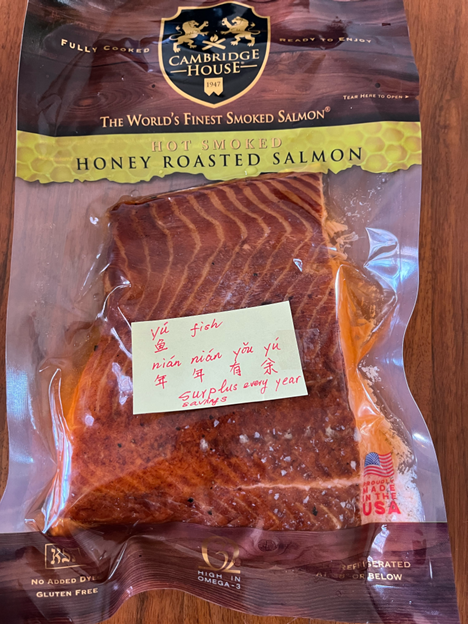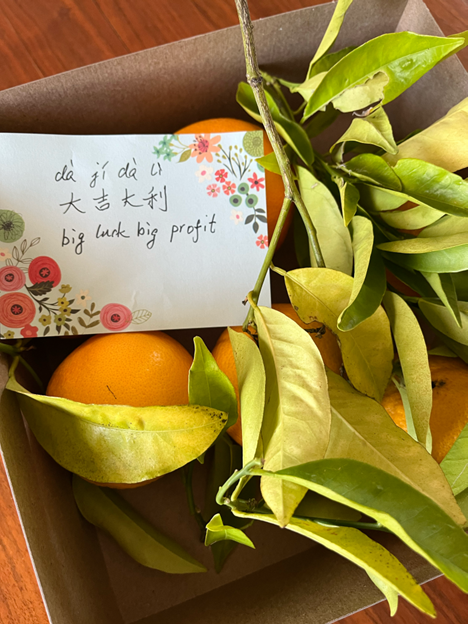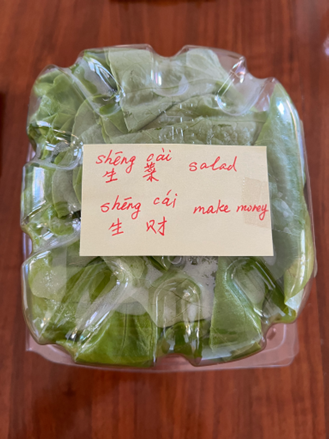By James Xie, MD
Wishing everyone a Happy Lunar New Year!
On February 10, 2024, many different cultures celebrated the new year based on the lunar calendar*. It is a time for celebration, family gatherings, and wishes for prosperity and good fortune for all.
In Mandarin, people say “gong xi fa cai” which means “congratulations and may you be prosperous!” You may also hear “kung hei fat choi” which is the same thing in Cantonese. In Vietnamese, people greet each other with “chuc mung nam moi” which means “happy new year!” In formal Korean, elders are greeted with “saehae bok mani badeusipsio” – or “many blessings for the new year!”
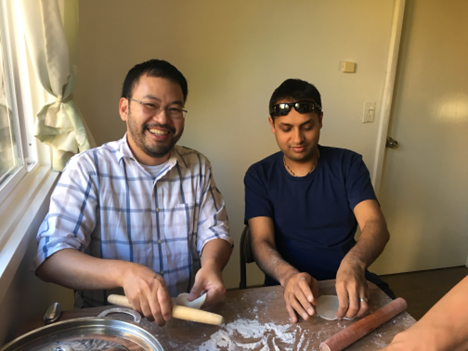
Although my ethnic heritage is Chinese, and I celebrate Chinese New Year, I make an effort to say Lunar New Year because there are many cultures (even outside of Asia) that celebrate the Lunar New Year today. It’s more inclusive!
Even though Lunar New Year is steeped in various traditions, the ones I have adopted are a reflection of my family’s international journey. For most families in China, the new year holiday is a big deal – families reunite and celebrate together; there is a major travel rush (this year 9 billion domestic trips are expected). However, my family never had the luxury of returning to China for the New Year and have instead improvised celebrations across the world centered around food. Good thing I love sharing tasty food!
My parents are from the south of China (Guangzhou and Chaozhou), but they completed their graduate studies in Europe in the 1980s. My mum completed her PhD in German linguistics in Leipzig, Germany; she was one of the first graduate students to study abroad after Deng Xiaoping’s open door policy was enacted in 1979. She was in a cohort of six students, the rest of whom were from northern China. To share Chinese cuisine with their German professors, the students decided they wanted to make dumplings, which are a classic northern Chinese dish. However, they didn’t have a rolling pin available to make dumpling skins, so they requested one via the Chinese embassy. With no direct flights from China to Germany, an envoy flew the rolling pin out via Moscow, and it arrived in time to make dumplings for the New Year. The rolling pin moved with us from Germany to Switzerland (where I was born – fun fact: our colleague Martin Angst completed his medical training in Bern around the time I was born there) to England and finally to the San Francisco Bay Area. Although dumplings are not typical in southern Chinese cuisine, they have become part of my family’s celebration. The communal cooking process brings friends and family together.
In high school, I joined our school’s dragon dance team and I got to experience the fanfare of San Francisco’s Chinese New Year Parade (happening on February 24, 2024 this year). It was an honor to dance with the heavy dragon head, leading the 104-foot dragon through the streets of San Francisco. As an undergraduate at Stanford working in the Asian American Activities Center (A3C), I learned about the diversity of the Asian American experience and why it’s meaningful to share, celebrate and observe our many traditions with friends and family.
More recently, my mum has taught me about other Chinese food traditions based on homophones of phrases that mean good fortune, luck, or money.
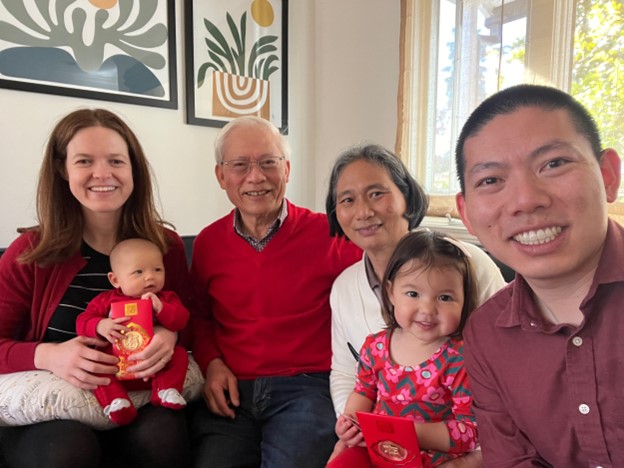
Today my parents came over to celebrate and gave my youngest daughter Nelle her first “hong bao” or red envelope with lucky money in it. Wearing red symbolizes prosperity and wards off evil spirits.
Whether you’re celebrating with tried and true traditions or establishing new ones – wishing you great blessings, prosperity, and health in the year of the dragon 2024! * Side note: the reason why LNY always falls in January/February is due to intercalation. Similar to how leap years work, days are padded on so that although the date shifts, the time of year that LNY occurs ends up in Jan/Feb, which technically makes it a lunisolar calendar. This is why the dates of the Muslim celebration of Ramadan shifts throughout the year because it follows a strictly lunar calendar (thus it doesn’t fall in the same part of the year each year).
